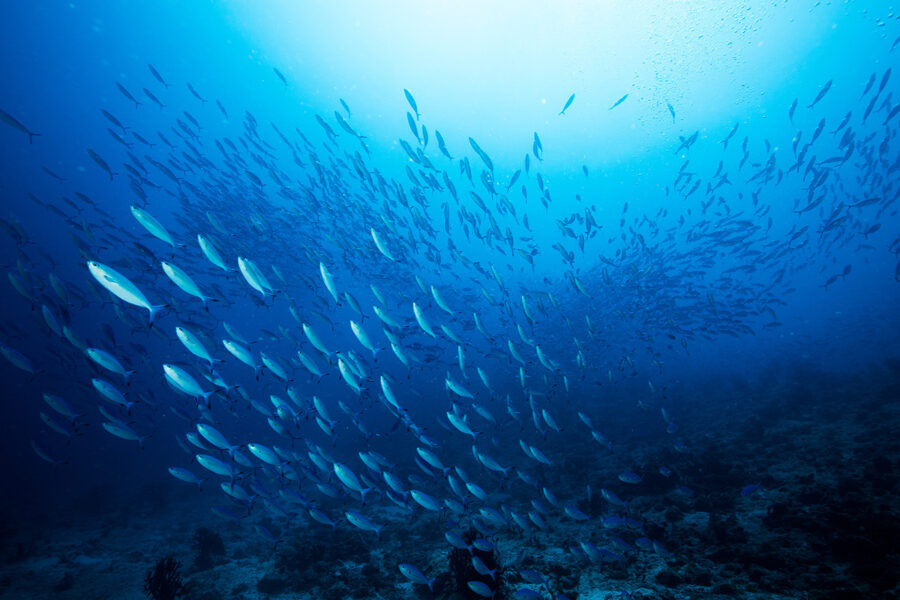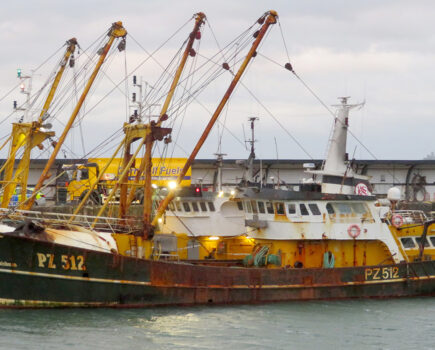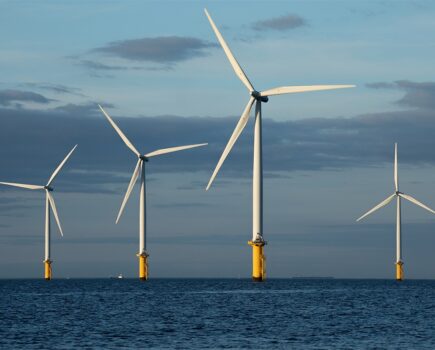The Fisheries Management and Innovation Group, setup by Seafish to bring together a wide range of views about marine protection and fisheries, held a lively meeting in Fishmonger’s Hall in London last week.
The catching sector was largely absent from the audience, but was well represented in several presentations and during panel discussions. An indication of the shifting balance of power with respect to the fishing industry was the large number of NGOs present, many of which have been very vocal about fishing and the need for greater marine protection.
‘Trawling for Truth’, he morning session, saw presentations from Global Fishing Watch, Professor Michel Kaiser, Shetland UHI scientist Dr Ian Napier and Bally Philp of the Scottish Creel Fishermen’s Federation. Presentations and discussions centred on the use of science and data in generating both headlines and policy.
Ian Napier used the Shetland Fishermen’s Association ‘Fishy Falsehoods’ series to highlight several issues around the presentation and interpretation of fisheries and environmental data.
Comparison of two published research papers using different levels of scale and different criteria for measuring the impacts of bottom trawling on the seabed in the North Sea was quite illuminating. One measure, with large rectangles and a simple high/low impact definition, suggested that 80% of the seabed was negatively impacted by trawl gear. The second paper, at a finer detail of resolution, and with a sliding scale of impact, found that 80% could be classed as having ‘good’ ecological status.
A similar issue mentioned was the carbon footprint of different seafoods and fishing methods, where estimates of seabed carbon released by trawling differed by two orders of magnitude. The one conclusion that all parties were able to agree on was that the healthier the stock, and the smaller the relative fishing effort, the better for everyone.
The Seafish Fisheries Management and Innovation Group brings together the fishing industry, scientists, NGOs and regulators to discuss and share knowledge on catching sector issues. It provides a ‘safe space’ for constructive and open dialogue.
Aoife Martin, director of operations at Seafish, told FN: “We’re pleased to have a full house today and welcome the variety of different interests and perspectives that participants have shared.
“The purpose of the group is to provide all parties with the opportunity to stay up to date on the latest science and research, to be part of a cross-industry discussion, and to listen to the issues raised by other parts of the wider seafood industry. Today’s meeting more than met those objectives.”
This story was taken from the latest issue of Fishing News. For more up-to-date and in-depth reports on the UK and Irish commercial fishing sector, subscribe to Fishing News here or buy the latest single issue for just £3.30 here.
Sign up to Fishing News’ FREE e-newsletter here.








